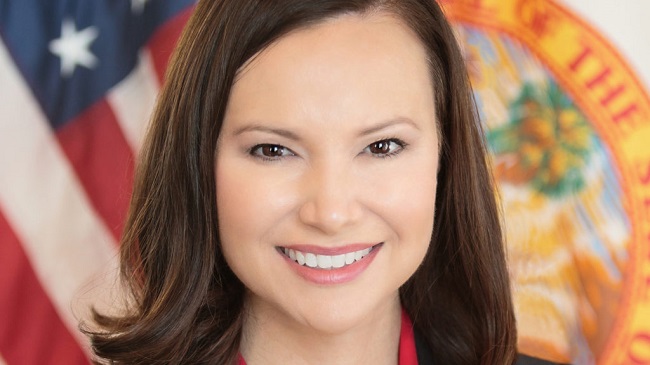By Jim Saunders, The News Service of Florida
TALLAHASSEE — After an investigative agency sided with the company, Florida Attorney General Ashley Moody’s office will urge an administrative law judge to find that Starbucks has improperly used race-based hiring practices.
Moody in May filed a complaint with the Florida Commission on Human Relations alleging that Starbucks had policies that “appear on their face to be racial quotas.” But after an investigation, the commission’s executive director in November issued a determination that there was “no reasonable cause” to believe that the Seattle-based coffee company violated a state anti-discrimination law.
Moody’s office responded by filing a petition that led Monday to the case going to the state Division of Administrative Hearings, where a judge will consider it.
The case came as Moody and other Republican leaders in Florida and across the country have targeted diversity, equity and inclusion efforts by companies and at places such as colleges and universities.
Moody’s office alleges Starbucks violated the Florida Civil Rights Act of 1992, which says it is illegal to make hiring or other employment-related decisions based on factors such as race. The human-relations commission has authority under the law to investigate alleged violations.
The May complaint cited information that Starbucks had posted on its website. As an example, it said the website included a goal of “achieving Black, Indigenous and People of Color representation of at least 30 percent at all corporate levels and at least 40 percent of all retail and manufacturing goals by 2025.” It also alleged executives had compensation tied to meeting “inclusion and diversity objectives.”
But Starbucks said the goals were “aspirational” — not illegal hiring quotas — and that executive compensation was not tied to meeting the goals, according to a memorandum by Alicia Maxwell, an investigation specialist with the human-relations commission.
That memorandum went to the agency’s general counsel and helped lead to the determination of “no reasonable cause” that Starbucks violated the law.
“The commission’s Office of General Counsel reviewed all available evidence and the investigative memorandum, and made a recommendation to me, as executive director of the commission, that it is unlikely that unlawful discrimination occurred in this matter,” Executive Director Cheyanne Costilla wrote in the Nov. 15 determination.
In the Dec. 19 petition that led to the case going to the Division of Administrative Hearings, Moody’s chief of staff, James Percival, wrote that in “the attorney general’s view, the investigative memo lacked a thorough discussion of the allegations and failed to provide a reasoned basis for its determination.”
The case had not been assigned to a judge as of Thursday morning, according to the Division of Administrative Hearings website. Under administrative law, a judge would ultimately issue a recommended order that would go back to the human-relations commission for action.


Why is it ok for the State to certify minority and women owned businesses for preferential treatment but Starbucks can’t have their own policies.
Why anyone would pay $12 for a cup of burnt rancid coffee is beyond me. The best part is watching those green-haired, bovine bling sporting, warming globes clowns sit in the drive thru line for 20 minutes in their idling cars to get it… lmao
Moody should go after media orgs like the Fake Newsocrat, which have a similar, though likely unwritten, policy. GutNett execs get additional pay for hiring minorities.
That’s what happens when companies get politically/economically shamed into basing hiring decisions on race and gender–often despite abilities. And these people will soon be “entitled” to $15/hr to pour cups of coffee?
If they really WERE “Aspirational Goals” maybe you should leave is “Aspirational” and NOT put it in Print.